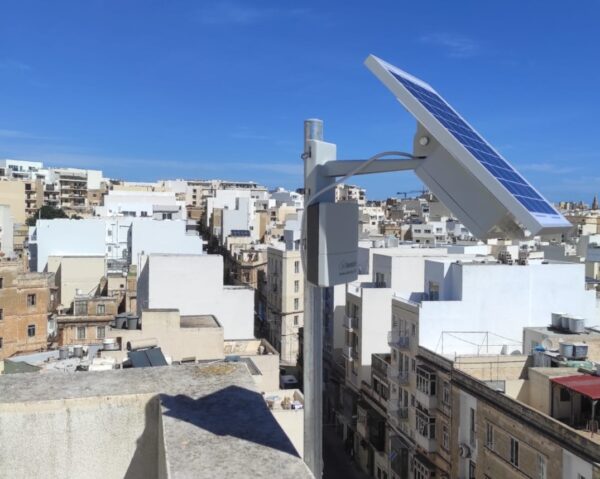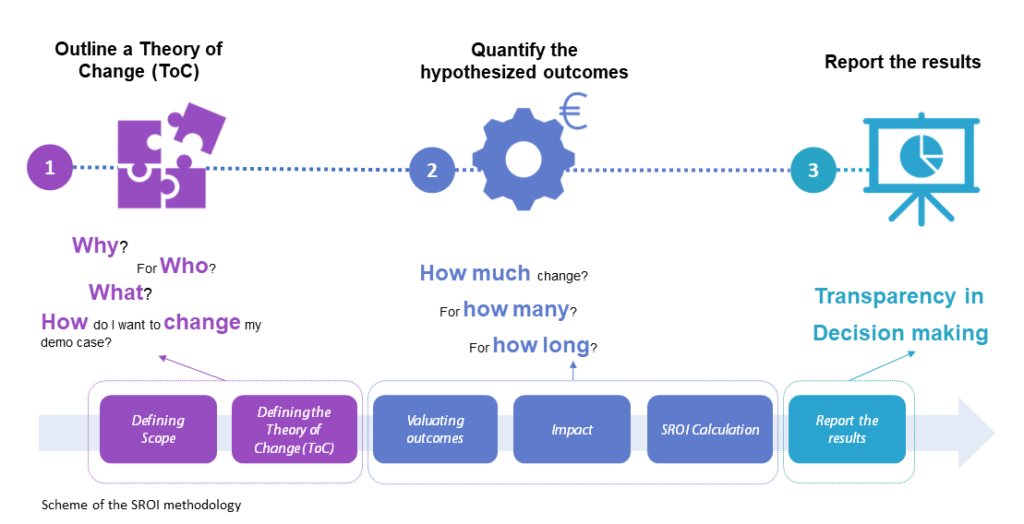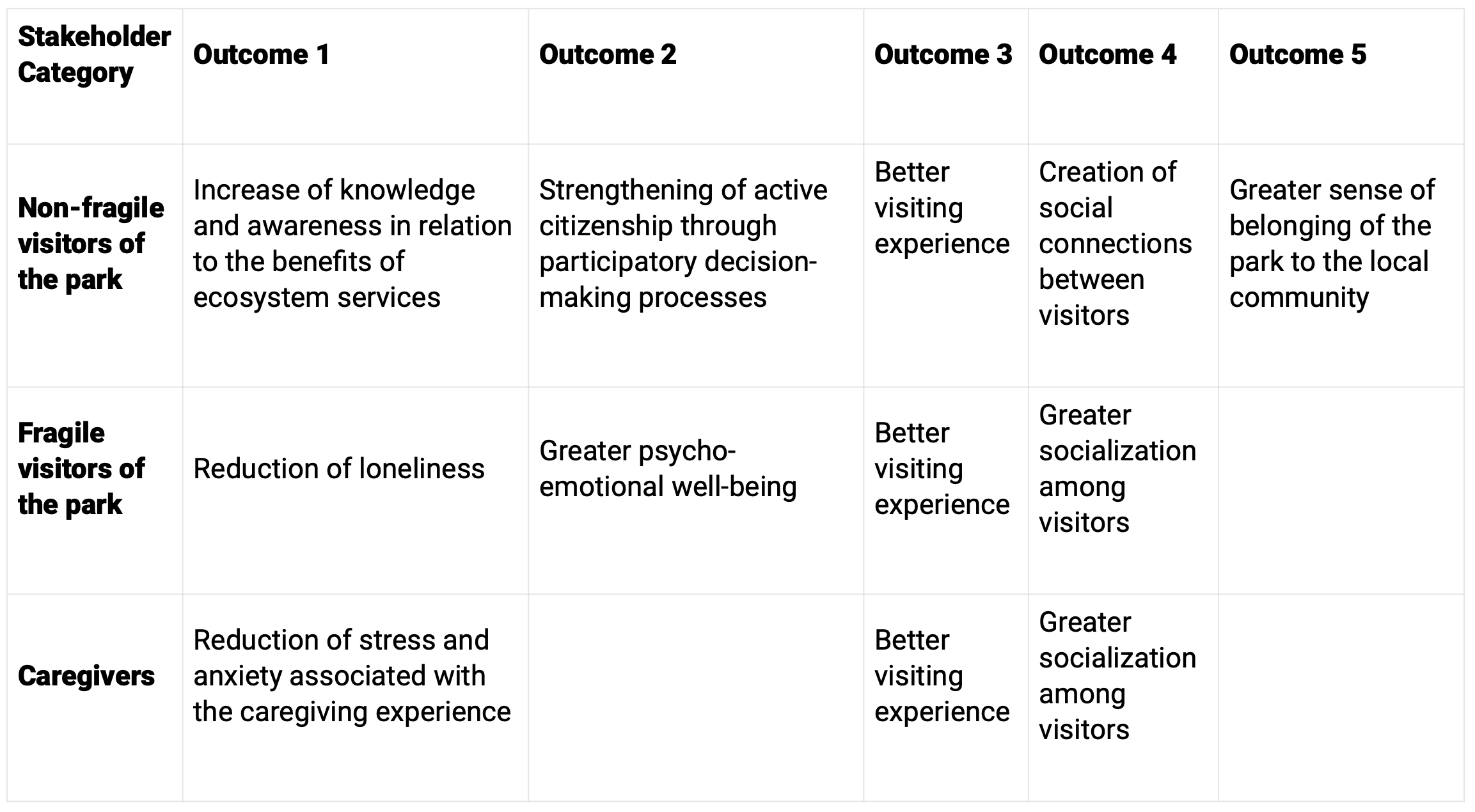Is it worth investing in Visionary Nature-based Solutions?
Exploring the social benefits of EU Project VARCITIES' Visionary Nature-based Solutions through Social Return on Investment Analysis
by Saba Mirzahosseini Barough & Elisa Vasiliu – 05.08.24
by Saba Mirzahosseini Barough & Elisa Vasiliu – 05.08.24
In the realm of urban development, the typical approach to evaluating projects revolves around their potential for financial profit. However, what happens if we redirect our attention to prioritize the enhancement of citizens’ health and well-being? How can we measure the social changes that occur as a result of an intervention, whether positive or negative?
This article describes the process of measuring social aspects that not only explore intangible benefits but also undergo a validation process of expected outcomes by directly engaging key stakeholders in workshop activities and conducting site visits to collect first-hand impressions.
The case study considered is the EU project VARCITIES, which focuses on the social impact of implemented Nature-Based and Digital solutions. The social benefits analysed are assigned a monetary value by applying the methodology of the Social Return on Investment (SROI).
The VARCITIES Project focuses on a holistic approach to Visionary Nature-Based Solutions (VSs), i.e., a series of urban actions that integrate Nature-based, Digital and Socio-cultural solutions to shape innovative urban spaces with the goal of establishing a more resilient and liveable urban setting for its residents, ultimately improving their health and well-being – Learn more about VSs. The project started in 2020 and will continue until 2025. It is being implemented in 7 European cities: Chania (EL), Castelfranco Veneto (IT), Leuven (BE), Novo Mesto (SI), Skelleftea (SE), Dundalk (IE) and Gzira (MT).

VARCITIES pilots. Source: varcities.eu
In the Gzira pilot, VARCITIES has played a crucial role in implementing VSs to enhance vibrancy and sustainability along Rue d’Argens, a heavily trafficked road, and at a local primary school. This innovative project goes beyond the mere introduction of green spaces; it focuses on community empowerment and sustainable development.
Three VSs are currently being implemented in Gzira:
Further information on the Gzira pilot and real-time environmental monitoring data are available on the VARCITIES Health & Wellbeing Platform.


VARCITIES Gzira pilot. Source: varcities.eu
The Social Return on Investment (SROI) analysis plays a crucial role in assessing the social, environmental, and economic benefits emerging from these combined Nature-Based and Digital interventions. By quantifying the positive impacts of these solutions, urban project managers can gain a clearer understanding of the value they bring to the community. This process aids in making well-informed decisions and prioritizing investments that optimize benefits for both residents and the environment.

Active citizen engagement is vital to enhancing VSs by enriching community empowerment and fostering a sense of ownership. By incorporating community voices and values into Willingness-To-Pay (WTP) assessments for project outcomes, citizens become proactive creators, as this engagement deepens their connection with nature, promoting stewardship and prioritizing community aspirations in decision-making processes.
Finally, involving residents in evaluating WTP cultivates transparency, accountability, and inclusivity in Nature-Based and Digital solution projects, aligning initiatives with community preferences and promoting collective responsibility for environmental conservation.
What was truly innovative in the SROI application in the VARCITIES project was the bottom-up approach of listening and validating the outcomes with the residents engaged. Instead of assuming the possible outcomes and respective monetary values. Therefore, three main involvement activities have been organized:

While the Gzira pilot is still in progress, the VARCITIES project initially tested the SROI methodology in the pilot of Castelfranco Veneto, a medium-small Italian city in the North. The results showed that for each euro invested, two euros of social return were generated.
In Castelfranco Veneto, six VS were proposed:

Following six workshop activities, two for each stakeholder group deemed relevant as affected by VARCITIES, the main outcomes outlined within the Theory of Change are as follows:

For further information read the scientific article: Visionary Nature-Based Solutions Evaluated through Social Return on Investment: The Case Study of an Italian Urban Green Space
The lessons learned from VARCITIES highlight the importance of prioritizing sustainability and green solutions in urban development. By embracing VSs, communities can create more resilient and liveable spaces that not only benefit the environment but also enhance the quality of life for residents. As we continue to explore the positive impacts of these solutions through SROI analysis, we gain a deeper understanding of how these initiatives can pave the way for a greener and more sustainable future. This detailed assessment not only quantifies the benefits of the initiatives but also empowers residents to actively engage in the evaluation process. By involving the community in measuring social value, the project provides residents with a “stage” to express their preferences and priorities. This inclusive approach not only strengthens the connection between the initiatives and the community but also ensures that VSs align with residents’ needs.